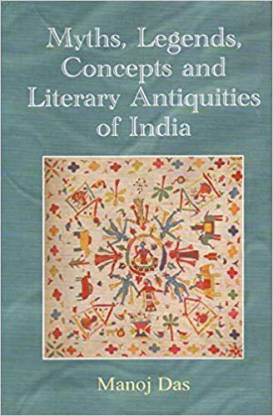Bhaskar Parichha
“I have now read the stories of Manoj Das, with great pleasure. He will certainly take a place on my shelves beside the stories of Narayan (R K Narayan). I imagine Odisha is far from Malgudi but there is the same quality in his stories with perhaps an added mystery.”— Graham Greene.
“Whenever people praise Paulo Coelho and the like, I always think of Manoj Das. What a great prolific writer we have. He could have easily reached the heights and beyond of the one Coelho reached. But he preferred silence, simplicity and serenity to fame and glory. In this, he has lived the very values he gave us through his stories.”— Aravindan Neelakandan, Indian Journalist

With the passing away of Manoj Das, Indian literature has lost a master storyteller who wrote bilingually — in English and his mother tongue Odia — with equal affluence. Novelist, short story writer, poet, essayist, editor, columnist, and sadhaka, Manoj Das will be remembered by generations of Odias for his literary outpouring for over half a century. Odisha-born (in a village called Sankhari in Balasore district bordering West Bengal), his fame went far beyond terrestrial limits.
Manoj Das began writing quite early. His first work — a book of poetry in Odia — Satabdir Artanada (Cries of a Time) was published in 1949 when he was barely in high school. In 1950, he launched a literary magazine, Diganta (Horizon). His first collection of short stories Samudrara Kshudha (Hungry Sea) was published the following year. Manoj Das often cited Vyasa, Valmiki, and Fakir Mohan Senapati, as his early influences.
He took an active interest in student politics while studying for his bachelor’s degree in Cuttack’s prestigious Ravenshaw College. A youth leader with radical views, he even spent a year in jail for his revolutionary undertakings. After graduating from Puri’s SCS (Samanta Chandra Sekhara) college. He received a postgraduate degree in English literature from Ravenshaw College. He was also a delegate to the Afro-Asian students’ conference at Bandung, Indonesia in 1959.
After a short stint as a lecturer in Cuttack’s Christ College, Manoj Das came to Sri Aurobindo Ashram in Pondicherry in 1963, where he had been professor of English Literature at the Ashram’s International Center of Education. Pondicherry (modern Puducherry) became his ‘Karma Bhoomi’ and his abode of sadhana. His quest for devoutness motivated him to become an inmate of Sri Aurobindo Ashram of which he was an integral part till his end.

Manoj Das wrote expansively and in various genres. Poetry, novels, short story travelogs and books on India’s history and culture dominated his works. Shesha Basantara Chithi (Spring’s Last Epistle ),Tuma Gam o Anyanya Kabita (Your Village and Other Poems) Dhumabha Diganta ( Dusky Horizon), Manoj Punjabimasti (Twenty-five short stories) and the most recent one, Shesha Tantrikara Sandhanare (In Quest of the Last Tantric), are among the Odia works he is best known for. His writings in Odia have mesmerized readers for decades.
Manoj Das has often been known as the Vishnu Sharma of modern Odia literature — for his magnificent style and effective use of words. His oeuvre displayed many dimensions of human nature. He was a truth-seeker, a thinker-writer whose works are defined ‘as a quest for finding the eternal truth in everyday circumstances’.

He began his English writing in 1967 with the publication of the short story collection A Song for Sunday and Other Stories. It was followed by Short Stories by Manoj Das. Both attracted commendation from literary doyens like Mulk Raj Anand, K P S Menon and K. R. Srinivasa Iyengar. Some of his other notable works in English are ‘ The Escapist’, ‘A Tiger at Twilight’, ‘The submerged Valley and Other Stories’, ‘The Bridge in the moonlit Night’, ‘Cyclones’, ‘Mystery of the Missing Cap’, ‘Myths’, ‘Legends’, ‘Concepts and Literary Antiquities of India’. He wrote his memoir ‘Chasing the Rainbow: Growing up in an Indian Village (2004.)
After the publication of ‘The Submerged Valley’, Graham Greene, whose appreciation of contemporary Indian fiction was limited to R K Narayan, wrote to Dick Batstone, publisher of the book, expressing happiness at his discovery of Das. “I imagine Odisha is far from Malgudi, but there is the same quality in his stories with perhaps an added mystery.”

Manoj Das is best known for his dramatic expression as well as satire. His writings dealt with various social and psychological issues: displacement, natural calamities such as floods, people’s belief in ghosts and spirits, duplicitous politicians, et cetera. While his writings were social commentaries on post-Independence times, the short stories, novels, essays and poems blended physical experiences with fantasy and left an indelible impression on Indian literature.
An exponent of the philosophy of ‘Sri Aurobindo and The Mother’, Manoj Das wrote weekly columns in almost all national dailies: The Times of India, The Hindustan Times, The Hindu and The Statesman. A whole generation of readers grew up reading his columns, which were contemporaneous and dealt with emergent issues. His newspaper writings — revealing the subterranean truth — are treasured by many.

He wrote for academic journals and periodicals too; and his international appeal grew most in the 1970s and 1980s when The Illustrated Weekly of India and The Imprint published his numerous stories. He also edited a cultural magazine, The Heritage, published by Chennai’s Chandamama group.
Awards came to Manoj Das effortlessly: the topmost being the Saraswati Samman, Padma Shri and Padma Bhushan for his lasting contribution in the field of Literature and Education. Kendriya Sahitya Akademi conferred its highest award on Manoj Das. He was Member, General Council of Sahitya Akademi, and the Author-consultant, Ministry of Education, Government of Singapore in the early eighties besides leading an Indian delegation of writers to China.
In 1971, his research in the archives of London and Edinburgh brought to light some of the little-known facts of India’s freedom struggle in the first decade of the twentieth century led by Sri Aurobindo for which he received the first Sri Aurobindo Puraskar (Kolkata).
Being a bilingual writer, when someone asked about the language he envisaged before writing a piece, he answered back: “In the language of silence — if I do not sound presumptuous, the creative process ought to be allowed some mystery. Inspiration surely precedes articulation through any language. This is absolutely true in regard to good poetry and substantially true in regard to good fiction. Without this element of inspiration, which is beyond language to begin with, literature can hardly have a throbbing soul.”

From a disenchanted Marxist to an ardent humanist, Manoj Das was an ingenious author. His creative works – running into a thousand and more — dealt with the Indian psyche and were so spontaneous that it impressed both the Indian and the Western reader — for the authenticity and the diversity.
Manoj Das had an uncanny capacity for presenting the serious and the serene in a way that was amusing, often arousing a lasting humor. Elements of fantasy as metaphor have a dominating presence in his fictions.
P Raja, author of Many Worlds of Manoj Das, has a deeper insight into his works: ‘Mystery in a wide and subtle sense, mystery of life, indeed, is the core of Manoj Das’s appeal. Born before Independence, he has thoroughly used it in his fiction. His experiences, gathered at an impressionable age, of the epoch-making transitions through which the country was passing. Thus we meet in his works lively characters caught up in the vortex of India’s passage from the colonial era to freedom, the impact of the end of the princely states and the feudal system, and the mutation of several patches of rural India into clumsy bazaars.’
For thousands of men, women, and children of the past three generations, Manoj Das has been the very synonym of courtesy and bliss. His words have inspired countless readers and have instilled a faith in the purpose of life.

(Excerpted from the book Unbiased : Writings on India,published by Blue Hill Publications, Patna)



























